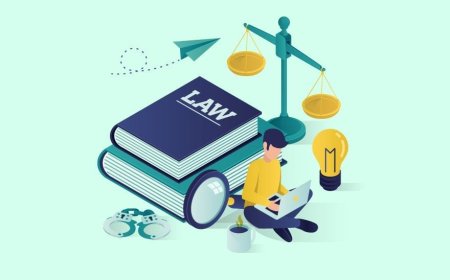Could a USA Lawsuit Wipe Out Your Savings? How to Stay Protected!

Introduction
In todays litigious society, lawsuits are more common than ever. Whether it's a business dispute, a personal injury claim, or a contractual disagreement, legal battles can drain your finances faster than you expect. If youre not prepared, a single lawsuit could wipe out your hard-earned savings, leaving you in financial distress.
The good news? There are proven ways toprotect your assetsand minimize risks. In this guide, well explore how lawsuits can threaten your savings, legal strategies to safeguard your wealth, and practical steps to ensure financial security.
How a Lawsuit Can Drain Your Savings
1. High Legal Costs
Defending yourself in court isnt cheap. Attorney fees, court costs, and settlements can quickly escalate, sometimes reachinghundreds of thousands of dollars. Even if you win, the legal battle itself can be financially crippling.
2. Judgments and Settlements
If you lose a lawsuit, the court may order you to paydamages, penalties, or compensation. In severe cases, creditors can seize:
-
Bank accounts
-
Real estate
-
Investments
-
Personal property
3. Wage Garnishment
Some judgments allow creditors togarnish your wages, meaning a portion of your income goes directly toward debt repayment. This can disrupt your financial stability for years.
4. Business Liability
If you own a business, you could be personally liable for lawsuits against your companyespecially if its asole proprietorship or general partnership. Without proper protection, your personal assets may be at risk.
5 Ways to Protect Your Savings from Lawsuits
1. Asset Protection Trusts
One of the strongest shields against lawsuits is anirrevocable trust. By transferring assets into a trust, you legally remove ownership, making it harder for creditors to seize them.
-
Domestic Asset Protection Trusts (DAPTs):Available in certain U.S. states, these trusts offer strong creditor protection.
-
Offshore Trusts:For high-net-worth individuals, offshore trusts provide an extra layer of security.
2. Homestead Exemptions
Many states offerhomestead exemptions, protecting a portion (or all) of your primary homes equity from creditors. The exemption limits vary by state, so check local laws.
3. Retirement Accounts (ERISA-Protected Plans)
Funds in401(k)s, IRAs, and other qualified retirement accountsare oftenprotected from creditorsunder federal law (ERISA). However, limits apply, so consult a financial advisor.
4. Liability Insurance
Insurance acts as afirst line of defenseagainst lawsuits:
-
Umbrella Insurance:Covers claims exceeding standard policy limits.
-
Professional Liability Insurance:Essential for business owners and freelancers.
-
Homeowners/Auto Insurance:Protects against personal injury claims.
5. Business Entity Structuring
If you own a business, structuring it as anLLC or corporationcan help separate personal and business liabilities. This prevents creditors from going after your personal savings in case of a business lawsuit.
Common Scenarios Where Lawsuits Threaten Savings
1. Car Accidents & Personal Injury Claims
A severe accident can lead tomassive medical bills and lawsuits. If youre found at fault, your savings could be wiped out without proper insurance.
2. Business Disputes
Contract breaches, employee lawsuits, or customer claims can put yourbusiness and personal assetsat risk if not properly shielded.
3. Debt Collection Lawsuits
Unpaid debts (credit cards, loans, medical bills) can lead to lawsuits, wage garnishment, and frozen bank accounts.
4. Divorce & Family Law Cases
Marital disputes can lead toasset division, alimony, and child support payments, significantly impacting your savings.
Steps to Take Now to Stay Protected
1. Consult an Asset Protection Attorney
A legal expert can help structure your finances tominimize exposureto lawsuits.
2. Review and Update Insurance Policies
Ensure you haveadequate liability coverageto handle potential claims.
3. Separate Personal and Business Finances
Never mix personal and business accountsthis helps maintainlegal liability separation.
4. Keep Records and Contracts Clear
Proper documentation can prevent disputes and strengthen your legal defense.
5. Stay Informed About Legal Changes
Laws evolve, so regularly review your protection strategies with a professional.
Final Thoughts: Dont Wait Until Its Too Late
A lawsuit can strike when you least expect it, and without proper safeguards, yourlifes savings could vanish overnight. By taking proactive stepssuch as setting up trusts, securing insurance, and structuring your business wiselyyou canfortify your financial future.
AtProog, we believe inempowering individuals with knowledgeto make informed financial decisions. Protect what youve worked hard forbecause peace of mind is priceless.



































